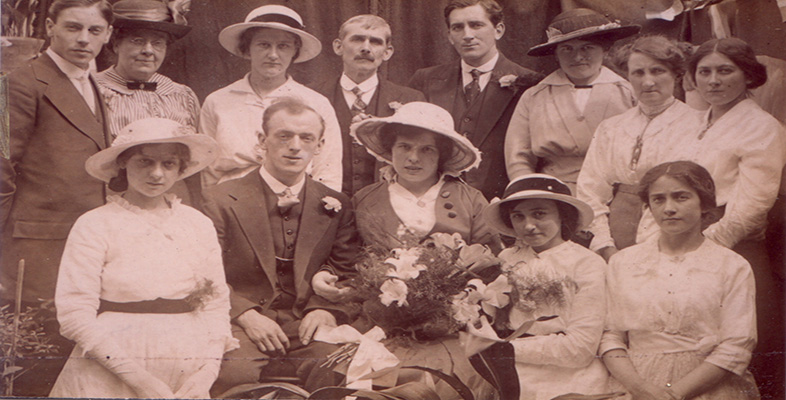5 Camera culture
5.1 Capturing commemorative events
This section explores the events commemorated in photographs.
Activity 19
Begin by listing the occasions when we choose to use our cameras today. It might help to think back over the times when you have used your camera in the last 12 months.
Answer
Does your list include some or all of the following?
holidays
outings
weddings
christenings
anniversaries
visits from or to relatives
family reunions
sports days and performances
visits by important people
new car, new house, new baby
national events: jubilees, street parties
local carnivals and street parades
works outings and events
festivals, e.g. Christmas
birthday parties
pets.
Activity 19a
Now see if you can assign the various occasions to one of the following categories:
rites of passage
special occasions and celebrations
prized possessions.
Answer
You may have thought of occasions which do not fall within my categories, but I hope you found that the majority of them can be assigned to those headings. So we can assert that in general the majority of snapshots taken in Britain in the early 21st century celebrate special occasions.
This activity reveals that, even today, our family photographs provide only a selective and partial record. Most of us don't bother to photograph the routine, ordinary aspects of our everyday lives. What, then are the consequences of neglecting the mundane in favour of the special? Are we continuing to portray an idealized version of family life following traditions inherited from the past? To answer this we need to look at the occasions when our ancestors chose to be photographed.
We might also want to think about changing our practices. Once we realize that we are working within a set of inherited and unexamined conventions, we may want to challenge them. We might, for example, decide to use the camera to record the mundane, or to comment on aspects of our personal lives about which we feel strongly and have something to say.
